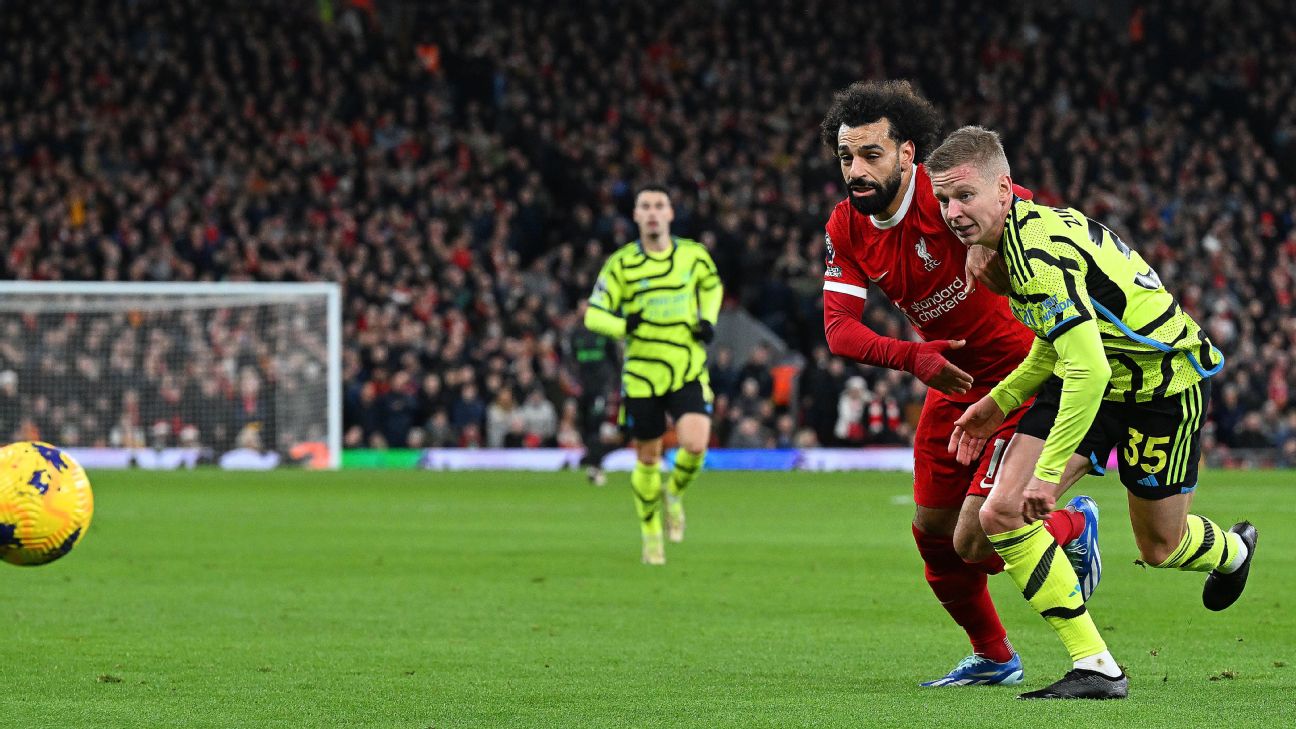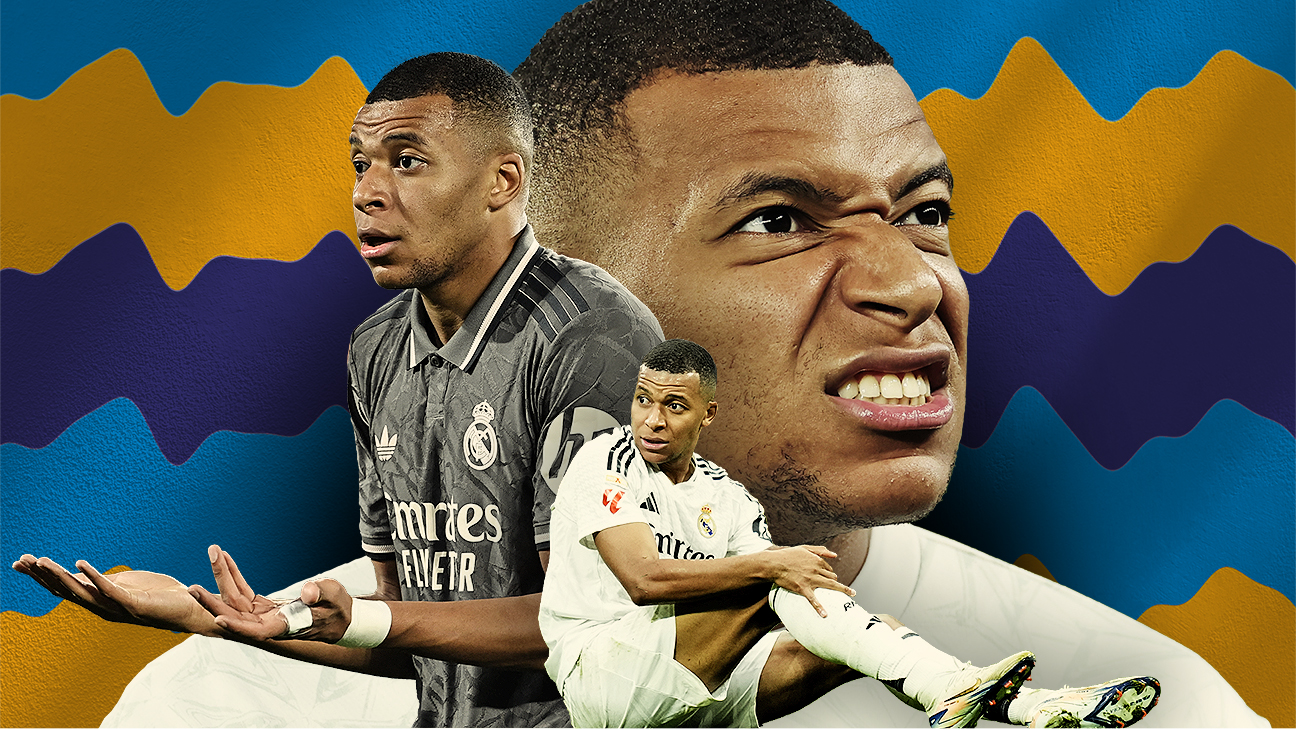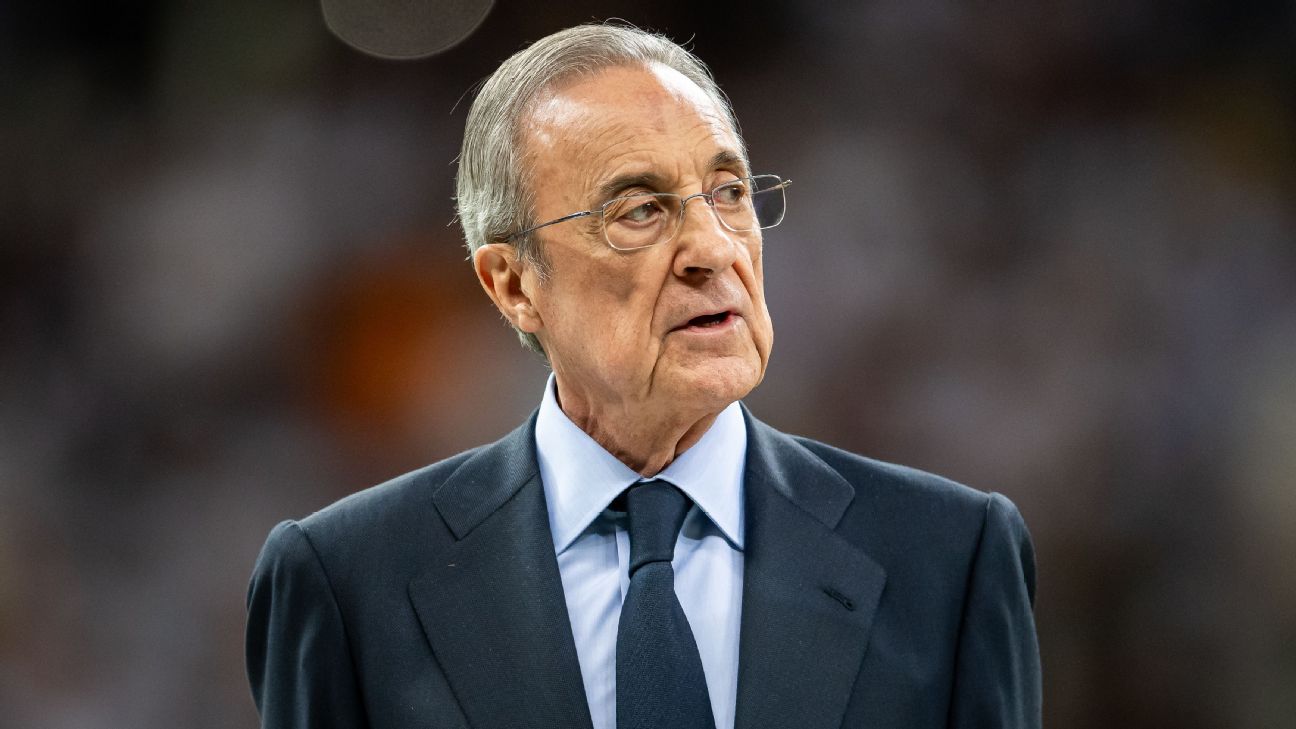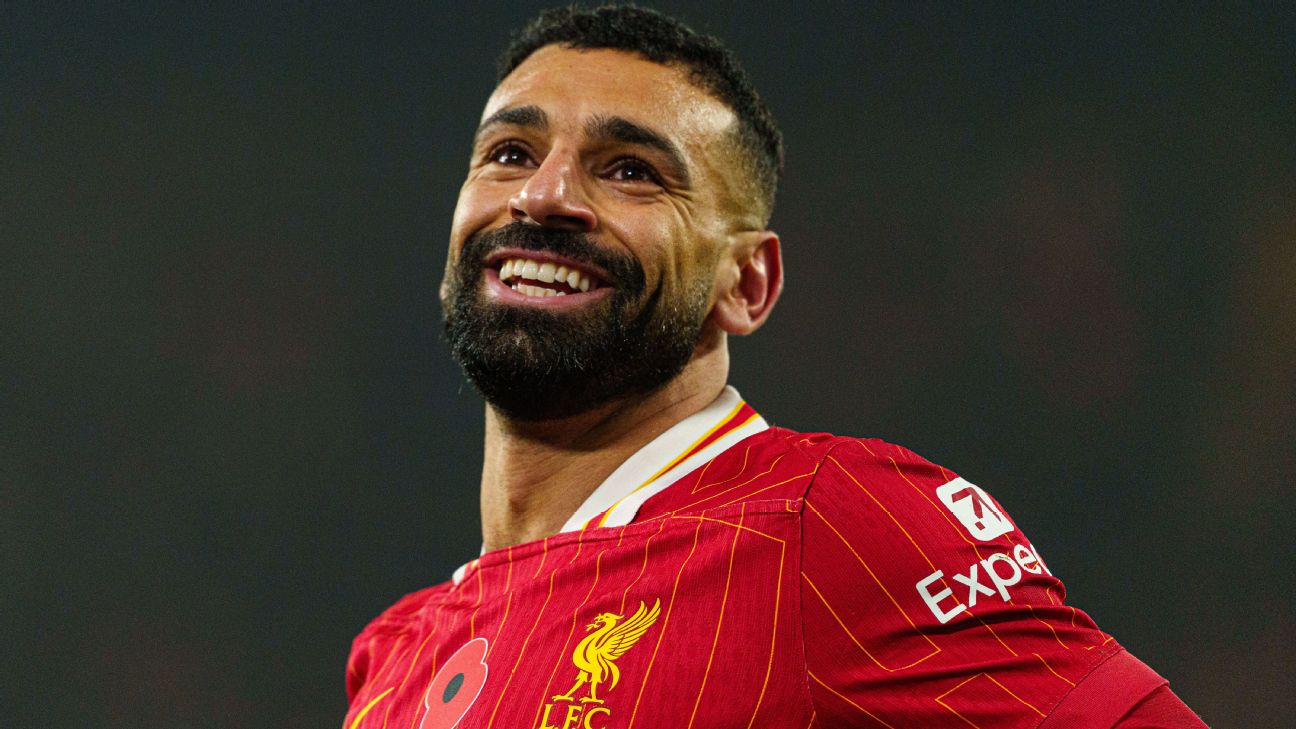January has to be the strangest month on the European club soccer calendar.
Aside from stubborn old England, most leagues and countries bake in at least a little bit of down time as the calendar flips to the new year, and just about everyone leans into cup play. That means a lot of big clubs visiting minnows in Spain and France, and it means some particularly delightful later-round matchups in England, where Middlesbrough and Fulham have both reached the Carabao Cup semifinals, and Germany, where the DFB Pokal, or German Cup, has gone so thoroughly off the rails that only three of eight quarterfinalists are top-division teams.
We’ve got some big-league matchups here and there, but January is a month for wet weather, odd cup spectacles, and a potentially incredible couple of matchdays in the Women’s Champions League. Let’s lay out the most important January matches in Europe.
England
-
Jan. 6: Newcastle at Sunderland (FA Cup, live on ESPN+
-
Jan. 7: Liverpool at Arsenal (FA Cup, live on ESPN+
-
Jan. 9 and 23: Middlesbrough vs. Chelsea (Carabao Cup, live on ESPN+
-
Jan. 13: Manchester City at Newcastle United
-
Jan. 14: Tottenham Hotspur at Manchester United
The draw for the 64-team third round of the FA Cup was rather strange. Of the 20 Premier League teams in the draw, eight are playing fellow top-division teams, and six are hosting lower-level opponents. Only Newcastle (at Sunderland), Brighton (at Stoke), Bournemouth (at QPR), Aston Villa (at Middlesbrough), Manchester United (at third-division Wigan) and Sheffield United (at fourth-division Gillingham) are playing smaller clubs away from home, which is generally the most enjoyable part of the FA Cup third round.
That said, Newcastle-Sunderland is huge. The clubs are separated by only 15 miles, but this is somehow the first iteration of the bitter Tyne-Wear derby since 2016. Combined with the second Liverpool-Arsenal match in 16 days — followed by another league encounter on Feb. 4 — we’ve got a couple of pretty good anchors for this round.
We’ve also got a couple of dynamite Carabao Cup semifinals. Liverpool (vs. Fulham) and Chelsea are used to these stakes, but second-division Middlesbrough are looking for their first domestic cup final since 2004, and Fulham are looking for their first since 1975. Pair all of this with a couple of big league matches — City-Newcastle and Spurs-Manchester United — and we’ve got a couple of huge weekends coming up in England.
Germany
-
Jan. 13: Eintracht Frankfurt at RB Leipzig (Live on ESPN+
-
Jan. 20: Bayer Leverkusen at RB Leipzig (Live on ESPN+
-
Jan. 27: RB Leipzig at VfB Stuttgart
-
Jan. 30: Fortuna Dusseldorf at St. Pauli (DFB Pokal, live on ESPN+
-
Jan. 31: Kaiserslautern at Hertha Berlin (DFB Pokal, live on ESPN+
Germany’s winter break ends next weekend and for basically three straight weekends, RB Leipzig will be the Bundesliga’s main character. The energy drink giants will face three of the top six teams in the league in short succession, two at home. They are currently fourth in the table, eight points behind first-place Bayer Leverkusen, but six points ahead of fifth-place Borussia Dortmund.
Opta’s power ratings currently give Leipzig only a 1.3% chance of winning the league, but a 93.1% chance of finishing in the top four. One of those two numbers might change dramatically with a particularly strong or particularly poor January run.
Meanwhile, though Stuttgart at Bayer Leverkusen on Feb. 6 gives us at least one heavyweight matchup in the DFB Pokal, the first two quarterfinals on the docket will shift the focus to the second division. St. Pauli will attempt to continue their dream season rolling — Germany’s lovable pirate ship of a club are currently second in the 2. Bundesliga, well-positioned for their first trip to the top division since 2011, and they’re in the cup quarterfinals for the second time in three years as well. (They haven’t reached the semis since 2006, however.) They host Dusseldorf in league play on the 27th, and then the two clubs meet again three days later.
Spain
-
Jan. 6: Real Madrid at Arandina CF (Copa del Rey, live on ESPN+
-
Jan. 7: Barcelona at Barbastro (Copa del Rey, live on ESPN+
-
Jan. 13: Real Sociedad at Athletic Club (live on ESPN+
-
Jan. 14: Supercopa final (live on ESPN+
-
Jan. 21: Barcelona at Real Betis (live on ESPN+
Aranda de Duero is a city of 33,000 about an hour-and-a-half north of Madrid. It’s primarily known for its wine. Barbastro is a city of 17,000 about two hours northwest of Barcelona. I’m not sure what it’s most known for. Both Arandina CF and Barbastro play in the Spanish fourth division, and both clubs upset top-division opponents in December — Arandina beat Cadiz 2-1, Barbastro beat Almeria 1-0 — to earn the right to host the two biggest clubs in Spain in the Copa del Rey. Cup competitions rule.
Spain really leans into the cup vibes in January, too. After the Copa del Rey round of 32 comes the four-team Supercopa, albeit in Saudi Arabia instead of home stadiums. The semifinals are on the 10th (Atletico Madrid-Real Madrid) and 11th (Barcelona-Osasuna), with the finals next Sunday. Throw in a huge Basque Derby — the winner of Real Sociedad-Athletic becomes the default favorite to move into the top four if someone (Girona, probably?) falters — and you’ve got quite a bit to track.
Italy
-
Jan. 7: Atalanta at Roma
-
Jan. 14: Roma at AC Milan
-
Jan. 17: Fiorentina at Bologna (Coppa Italia)
-
Jan. 27: Bologna at AC Milan
-
Jan. 28: Napoli at Lazio
The Coppa Italia’s round of 16 wraps up this week — Italy wasn’t kind enough to completely bust its bracket like Germany did, but it means plenty of big names in next week’s quarterfinals.
It also means the biggest two weeks for Bologna in quite a while. The Rossoblu haven’t finished higher than ninth in Serie A in 22 years, but have lost only three times in 18 league matches. Saturday’s 3-0 loss to Udinese rang some alarm bells, but with Fiorentina in the Coppa Italia and Milan in league play, Bologna have got a couple of massive January opportunities.
It’s also a particularly big month for both Roma and Milan. Roma has slipped to seventh after pulling just four points from four league matches, but they’re still only five points out of the top four and they’ve got matches against opponents higher in the table for two straight weekends. And at the end of the month, ninth-place Lazio and eighth-place Napoli, the two most disappointing teams in Serie A this year, face off. Both have time to rally — but not that much time.
The rest of Europe
-
Jan. 7: PSG at US Revel (Coupe de France)
-
Jan. 14: Braga at Porto (Liga Portugal)
-
Jan. 27: Union Saint-Gilloise at Anderlecht (Belgian Pro League)
-
Jan. 28: Brest at PSG (French Ligue 1)
-
Jan. 28: Twente at Feyenoord (Dutch Eredivisie, live on ESPN+
Like Spain, France does a lovely job of sending big clubs to visit tiny clubs in cup play, and sixth-division Revel hosts PSG this weekend in the Coupe de France. Their home stadium is too small to host the match, but they are still pretty excited about this turn of events, to say the least.
PSG hosts a pretty big match late in the month, too — fourth-place Brest aren’t a title threat, but are most certainly in the race for a Champions League bid.
There are also big league matches elsewhere. Union Saint-Gilloise has a huge chance to build their lead over second-place Anderlecht in Belgium (it’s currently six points), Porto and Braga both need a win to stay within shouting distance of first-place Sporting in Portugal, and in the Netherlands, second-place Feyenoord hosts third-place Twente. Neither are likely to catch runaway leader PSV, but this one still has Champions League implications.
AFCON!
-
Jan. 18: Nigeria at Ivory Coast
-
Jan. 18: Egypt vs. Ghana
-
Jan. 19: Senegal vs. Cameroon
-
Jan. 20: Algeria vs. Burkina Faso
-
Jan. 23: Senegal vs. Guinea
There are no international breaks this month, but there’s still a huge international tournament to track: the 2023 Africa Cup of Nations, which will take place in January-February 2024. (Soccer: refusing to make even a lick of sense for over 150 years.)
This tournament is as star-studded as any edition to date. Liverpool’s Mo Salah (Egypt), Napoli’s Victor Osimhen (Nigeria), PSG’s Achraf Hakimi (Morocco), Bayer Leverkusen’s Victor Boniface (Nigeria) and Edmond Tapsoba (Burkina Faso), Stuttgart’s Serhou Guirassy (Guinea), Manchester United’s Andre Onana (Cameroon) and West Ham’s Mohammed Kudus (Ghana) and Nayef Aguerd (Morocco) are all scheduled to take part.
According to ESPN BET, Senegal (+550), World Cup semifinalist Morocco (+650), Algeria (+650), Ivory Coast (+650), Cameroon (+800), Egypt (+900) and Nigeria (+900) are your favorites from this 24-team field, but no one has greater than 15% implied odds at the title. This thing is wide open.
Oh, and your requisite group of terror, by the way? Group C, which features the overall favorite Senegal, Onana’s Cameroon and Guirassy’s Guinea. All first- and second-place teams from the six groups will advance, along with four of six third-place teams. Buckle up.
Women’s club soccer
-
Jan. 24: Ajax at PSG (Champions League)
-
Jan. 24: Paris FC at Hacken (Champions League)
-
Jan. 30: Roma at Ajax (Champions League)
-
Jan. 30: PSG at Bayern Munich (Champions League)
-
Jan. 30: Chelsea at Paris FC (Champions League)
The domestic leagues in both Spain (Madrid CFF at Real Madrid on Jan. 7) and England (Manchester United at Chelsea and Liverpool at Manchester City on Jan. 21) have some big matches coming up. But the biggest thing on the docket in January is the end of the Champions League group stage.
Heading into the final two matchdays, we’re basically looking at two mostly settled groups and two completely unsettled groups. Unless Benfica slips up against Rosengard or Eintracht Frankfurt shocks Barcelona, it’ll be Barca and Benfica coming out of Group A and Lyon and Brann coming out of Group B. But seven of the eight teams in Groups C and D still have hopes of advancing.
Group C
Ajax: 7 points
PSG: 6 points
Bayern Munich: 5 points
Roma: 4 points
Group D
Chelsea: 8 points
Hacken: 7 points
Paris FC: 6 points
Real Madrid: 1 point
Considering even the team that’s virtually eliminated (Real Madrid) is still quite good, that makes all eight of the remaining matches in these two groups both vital and relatively up-in-the-air. That’s particularly true of Group C, the toughest group of the competition, in which everyone’s goal differential is +0 after four matches.



